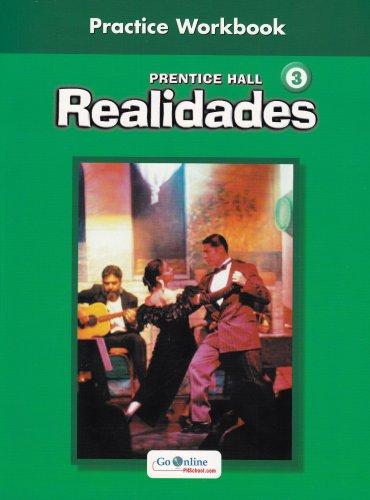
All Solutions
Page 86: 6-10
1.El jueves vengo a ayudarte con el informe. (Para el miércoles/ Entregar el informe)
2.Llegaremos dentro de media hora para verlos a Uds. (dentro de media hora / salir)
3.Estaré a las siete para comer con ellas (a las siete ya/ cenar)
4.En el año 2100 seguiremos usando gasolina (para aquel año/ descubrirse nuevas fuentes de energía)
1. On Thursday I come to help you with the report. (By Wednesday / Deliver the report)
2.We will arrive within half an hour to see you (within half an hour / leave)
3. I’ll be there at seven to eat with them (at seven and / to have dinner)
4.In the year 2100 we will continue to use gasoline (for that year / discover new sources of energy)
Next, we conjugate the verbs that were in the previous row. They are between parenthesis.
1.Pero para el miércoles habré entregado el informe.
2.Pero dentro de media hora habremos salido.
3.Pero a las siete ya habremos cenado.
4.Pero para aquel año se habrán descubierto nuevas fuentes de energía.
Notice the subject-verb agreement.
1 But by Wednesday I will have delivered the report.
2.But in half an hour we will be out.
3. But at seven o’clock we will have dinner.
4 But by that year new sources of energy will have been discovered.
1.La señora Díaz dice que pasa menos tiempo ahora con los quehaceres de la casa.
2.Los Gómez gastan menos ahora para calentar su casa.
3.Carlos ya va todas partes en coche.
4.¿Cómo pudo Sarita pagarse el viaje a Florida?
1.Mrs. Diaz says she spends less time now with housework.
2.The Gomez are spending less now to heat their home.
3 Carlos already goes everywhere by car.
4. How could Sarita pay for the trip to Florida?
B.
1.Se habrá comprado un robot.
2. Habrán comprado un aparato de calefacción solar.
3.Habrá aprendido a manejar.
4.Habrá conseguido dinero en el banco.
1.A robot will have been purchased.
2. They will have bought a solar heating device.
3. You will have learned to drive.
4. You will have gotten money in the bank.

